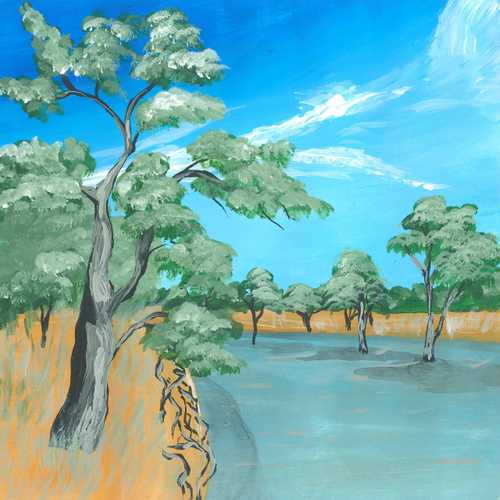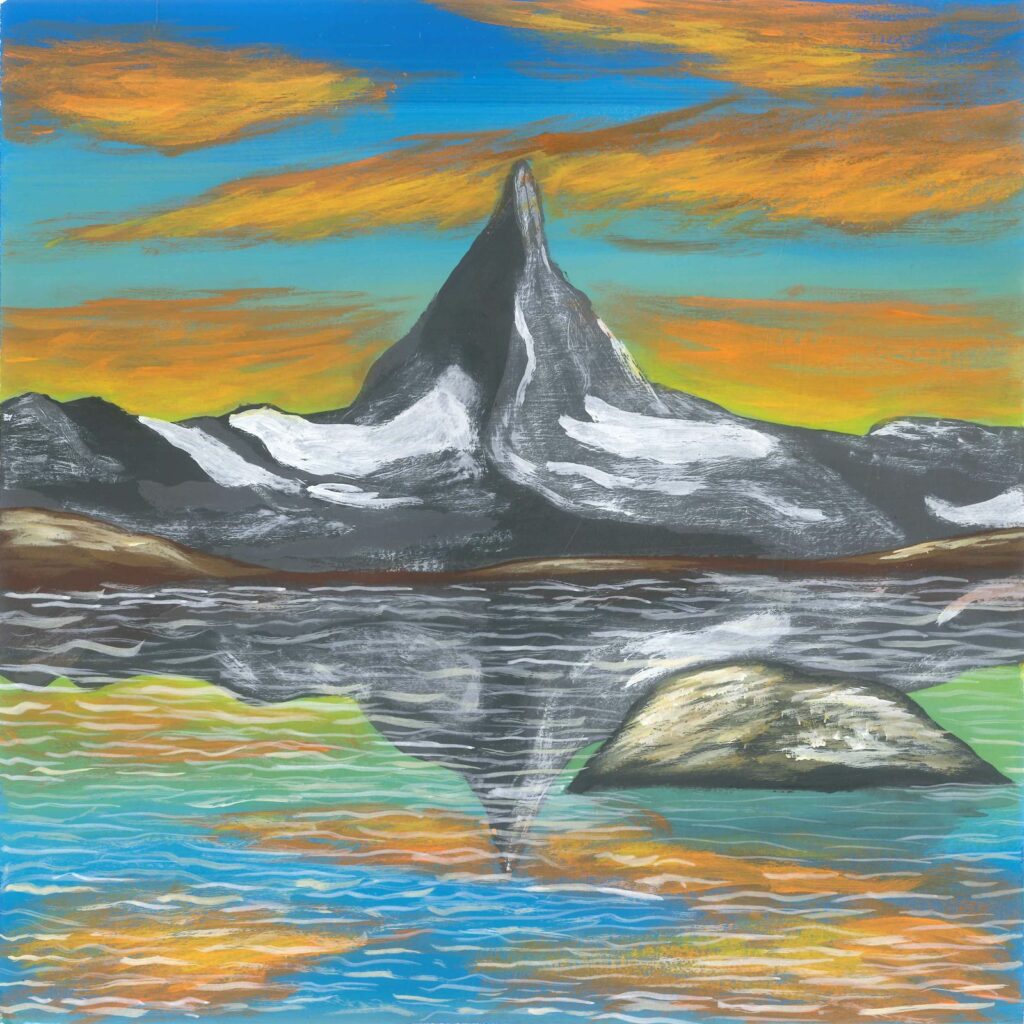
The sound of silence, mining SE Asian rainforest, and the importance of darkness | Newsletter #53
Mari mari*, friend. 🙋🏻♂️
Could a conclusion have been reached about whether we hear silence, or only perceive it by its absence? Can the last place where tigers, elephants, rhinos, and orangutans coexist be saved from the rapaciousness of gold-mining corporations? Why is the loss of nighttime darkness such a significant (if underappreciated) problem, for both ourselves and the natural world? What are the ethical implications of off-site conservation?
Read on to find out.
*A general greeting in Mapudungun, the language of the Mapuche people indigenous to Chile and Argentina.
Soundscape of the week
🌎 ‘Magellanic Penguin Colony’:
In this recording by Ángel Pérez Grandi, South American Magellanic penguins in Patagonia bray, honk, and whistle in their largest colony. Upwards of a million individuals were recorded at this site in 2017. Chubut Province, where the colony is located, is home not just to penguins, but – almost as improbably – to a population of Welsh settlers, who were “offer[ed] […] 100 square miles (260 km²) of land […] in exchange for settling the still-unconquered [but not uninhabited] land of Patagonia” on behalf of the Argentine government.
Perhaps these penguins’ cries sound so mournful because the species is threatened by “chronic pollution [caused] by unreported oil discharges made at sea by international shipping” and oil spills (which were killing around 44,000 individuals each year in the 1990s), while climate change is killing chicks via both hypothermia from rain and hyperthermia from extreme heat.
Articles and essays
🔇 Hello, darkness, my old friend. Silence: yes, it’s the absence of sound. But it can signify danger; define patterns of speech; be used in ritual and in law, to intimidate, save face, or to show respect, thoughtfulness… or awkwardness. But what is silence? The answer may not be quite as simple as you imagine.
‘Is Silence a Sound After All?’ draws on recent findings to consider whether the age-old debate about the nature of silence may finally have been settled: but is it something which “we literally hear”, or something that “can only be ‘judge[d] or infer[red]’”…?
🌍 With ‘Spring Dawn Chorus in the Forest Meadow’, the latest episode of the Wind Is the Original Radio podcast, recordist Ivo Vicic takes us to a Croatian forest meadow. The sound of a dawn chorus in late spring is imbued with incredible lucidity as it echoes between the sides of a remote mountain valley 4,000 ft (1,250 m) above sea level.
A seasoned aficionado of nature recordings may imagine that there’s no need to listen to another dawn chorus, but the maximalist multiplicity of these birds’ songs makes this soundscape as fresh as if it’s being heard for the first time.
Other installments of Wind Is the Original Radio are available on Apple and Google podcasts, Spotify, and Stitcher, with new episodes released every Friday.

From the extended community
🌏 “The rainforest in Beutong district is lush, and the Meureubo River is refreshingly clear. ‘We live off the river, drinking its water and using it to irrigate our fields and gardens,’ says Malikul Azis, headmaster of a local school. But the forest, the river and people’s lives are under threat: A gold mine is planned for the area. That would mean cutting down thousands of hectares of rainforest. […] [But] this last great rainforest of Southeast Asia is […] the last place on Earth where tigers, elephants, rhinos and orangutans share the same habitat.”
Locals unanimously oppose mining and logging in the area, but these threats are ever present. The latest company to endanger the area has applied for a permit to mine for gold – riches which are a curse rather than a blessing. Sign Rainforest Rescue’s petition to support this embattled garden of Eden.
🌃 “Not only does darkness offer unique physical and mental benefits to humans, it is vital to plants, mammals, birds, reptiles and insects […]. The trouble is, the dark scares us.” We conceive “of darkness as a state to be avoided or an impairment to be fixed” – yet, ‘Everything from Our Sleep to Our Hormones Relies on the Dark. So Why [the UK Guardian asks] Are We So Intent on Destroying It?’. “Darkness is being stripped at a rate unprecedented in human history – the spectacle of the Milky Way in the night sky is now invisible to 80% of the world’s population (and 99% of the population of the US).”
This loss of dark habitat inhibits the lives and cycles not only of nocturnal species but diurnal ones, too: “hatching turtles are disoriented; camouflage ceases to conceal. Reproductive cycles fail and the daily life cycle of plants is interrupted. Animals and insects stay active for longer, exhausting themselves.” As for ourselves, the disruptions caused by artificial lighting to our circadian rhythm “distresses our entire body”, contributing to “diabetes, cancer, obesity or cardiovascular disease [and] immune deficiency and […] the […] risk of stroke”.
🔒 “It’s so difficult to get species back out into the world once the last of them have been brought into captivity. And that’s for a whole range of reasons. One of the biggest is just that the reasons we brought them into captivity in the first place are very often that their habitat is being destroyed. So getting back the kind of lands that they could go into and live sustainably, is often just really really difficult or impossible.”
‘The Evolving Cultures of the More-than-Human World’, an episode of the Green Dreamer podcast featuring field philosopher and writer Thom van Dooren, investigates the realities and ethical implications of ex situ (off-site) conservation. The episode considers this kind of conservation in relation to the impossible-to-grasp scale of the ongoing sixth mass extinction – starting from the 750 species of land snails which once called Hawaii home, of which two-thirds are now extinct (and about the significance of which van Dooren has written a book).
👉🏽 Follow us on X, the platform formerly known as Twitter, for a daily dose of nature-sound inspiration!
How to support earth.fm
All 600+ of our curated, immersive soundscapes are free to listen to, but if you want to help us grow new forests, please become a supporter!
There are three options available, and you will also be able to favorite recordings, create and share playlists, and many other perks – plus a big surprise is coming exclusively to members in the next few weeks!
Until next time, we wish you a regenerative week. 🙏
With best wishes,
Neil and Team earth.fm
Reach out on hello@earth.fm 👋
Forward this newsletter to anyone who would appreciate it ✉️
Join the conversation with the Earth.fm community 🤝
Submit a recording 🎤
Follow us on Twitter. Instagram and YouTube 💻
Listen to nature sounds in your browser by installing our free extension 🎧
Earth.fm is a completely free streaming service of 900+ nature sounds from around the world, offering natural soundscapes and guided meditations for people who wish to listen to nature, relax, and become more connected.
Check out our recordings of nature ambience from sound recordists and artists spanning the globe, our thematic playlists of immersive soundscapes and our Wind Is the Original Radio podcast.
You can join the Earth.fm family by signing up for our newsletter of weekly inspiration for your precious ears, or become a member to enjoy the extra Earth.fm features and goodies and support us on our mission.
Subscription fees contribute to growing our library of authentic nature sounds, research into topics like noise pollution and the connection between nature and mental wellbeing, as well as funding grants that support emerging nature sound recordists from underprivileged communities.

